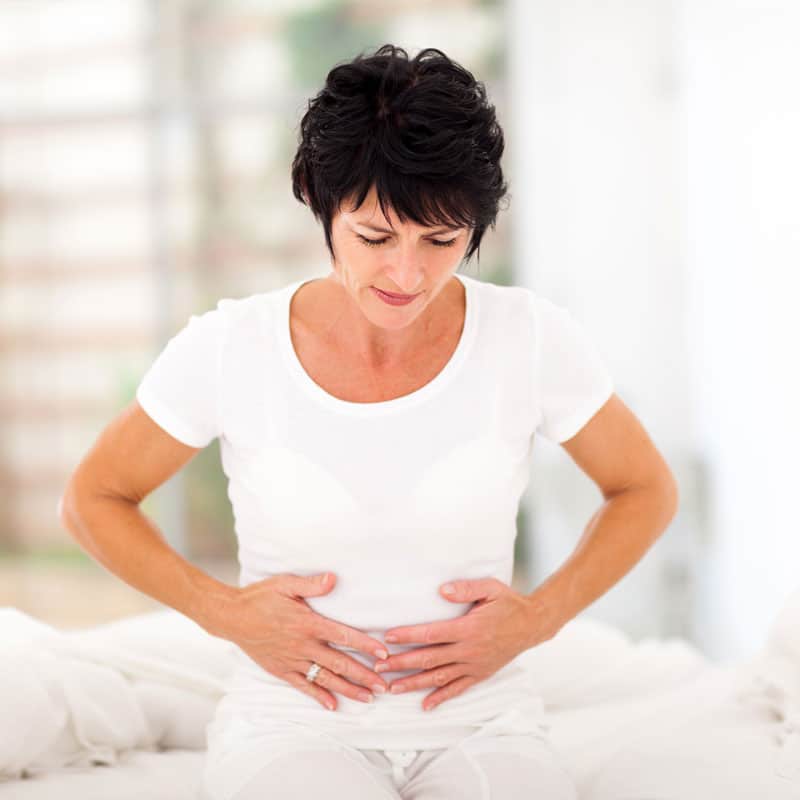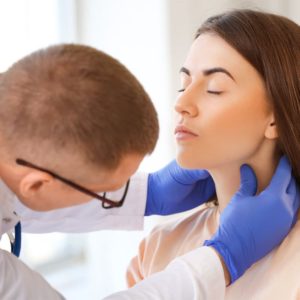Menopause occurs when your menstrual cycle ceases. To be diagnosed, you must have not had a menstrual period for at least twelve months. Do you know when menopause starts? According to studies in the United States, the average age of menopause is 51.
While you are transitioning through menopause, your hormone levels will fluctuate, which causes several symptoms, including sleep disorders, anxiety, depression, fatigue, and much more. Menopause affects all aspects of your health – physical, mental, and emotional.
Symptoms of Menopause
Menopause isn’t a one-two-and-done process. Instead, it can last for years. You may go two or three months without a period and then spot daily for a few months before returning to your regular cycle. This pattern can continue for quite some time as your hormone levels fluctuate. In addition to changes in your menstrual cycle, you can experience the following symptoms:

- Vaginal dryness due to decreased estrogen levels
- Hot flashes, night sweats, and chills caused by fluctuating hormone levels
- Sleep problems, including insomnia and disrupted sleep patterns
- Emotional issues, including depression and anxiety
- Dry, flaky skin and thinning hair
- Decrease of breast fullness
When Does Menopause Start?
Various factors affect when your menopause starts. The first consideration is the age at which your mother went through menopause. Most women can calculate when they will enter menopause by taking a look at their mother. For example, if our mother began perimenopause in her early 40s, she is considered to have early menopause. If your mother, aunts, and grandmothers all began perimenopause in their early 40s, then you most likely will begin perimenopause in your early 40s. Conversely, if your mother began perimenopause in her early 40s but her sisters and mother didn’t begin perimenopause until they were in their 50s, you may not follow your mother’s menopause path.
It is common knowledge that tobacco products are detrimental to one’s health. However, many women do not realize that it can affect your gynecological health, including early menopause. Smoking cigarettes can damage your ovaries. If you smoke and your mother, aunts, or grandmother did not, you will likely start menopause before them.
Chemotherapy destroys cancerous cells; however, it is toxic and can damage your ovaries. Those who are going through chemotherapy can experience temporary menopause. After chemotherapy, there is a good chance that your periods may return as the toxins leave your body and your ovaries heal. If your periods do not return, then you can expect to go through menopause a few years earlier than expected.
Gynecological surgeries that involve the ovaries can cause you to begin menopause earlier than expected. Those who have endometriosis are at an increased risk of premature menopause if multiple surgeries are required.
Many women think that the age of puberty and the onset of their first menstrual period can affect when menopause will start. Although girls are beginning to have a period at a younger age (12.4 years old compared to 13.3 years old in the 1920s), the average age for menopause has remained the same at 51.5 years old.
Ethnicity does not play a role in when a woman begins to go through menopause. No matter the ethnicity of a woman, the average age to experience menopause is between 51 and 54 years old.
Can You Delay The Start of Menopause?
There is no method or treatment to delay the start of menopause. Menopause can start early 
As you get closer to menopause, you will begin experiencing symptoms that can help determine how quickly you will go through menopause. For example, if you miss three menstrual cycles in a row, your doctor can predict that you will transition into menopause soon. Furthermore, your menopause doctor or nurse practitioner can help you navigate the symptoms of menopause and offer suggestions and scientifically proven holistic therapies to relieve many of the symptoms associated with menopause.




















